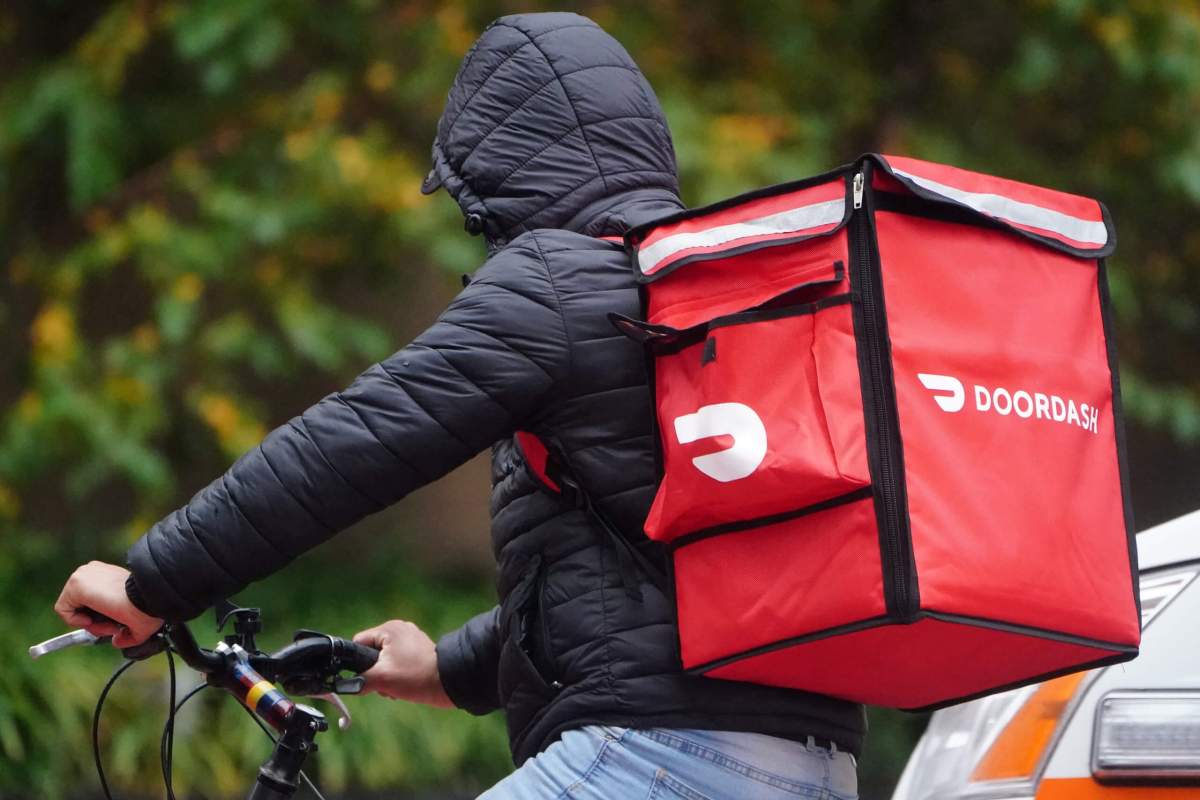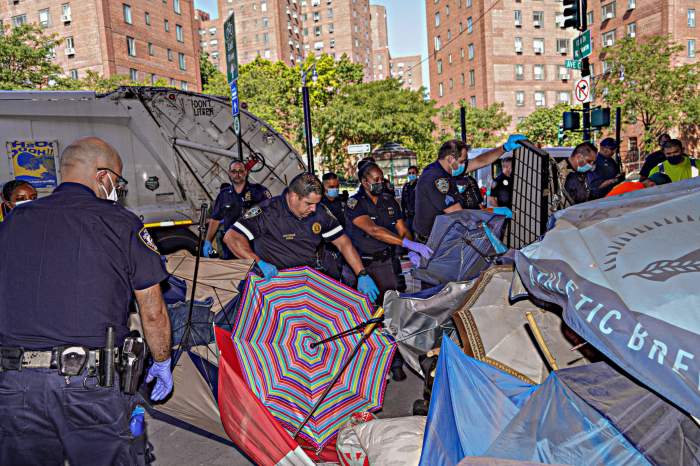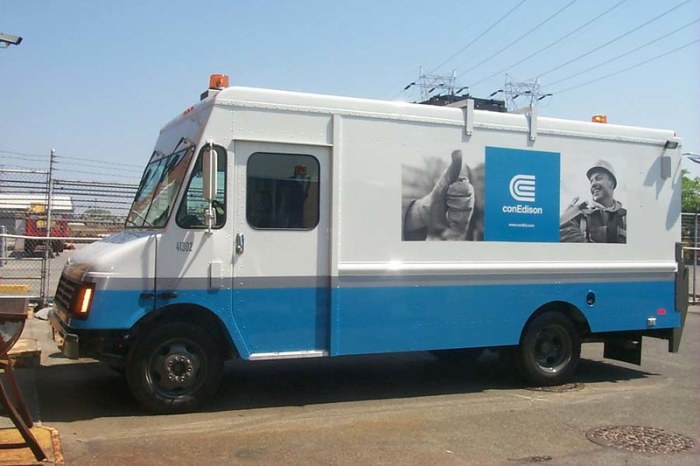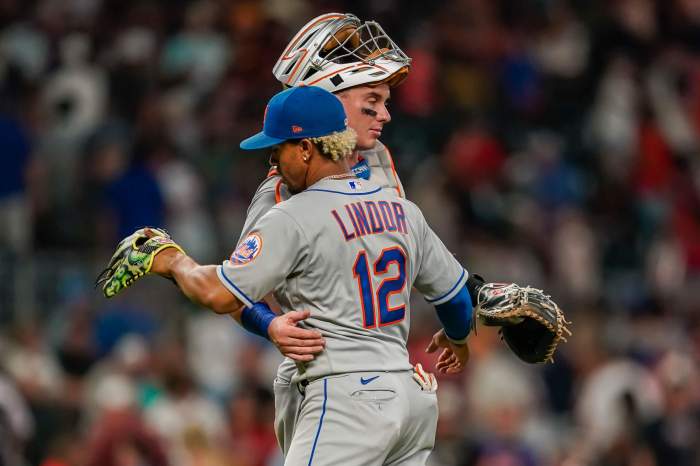A package of bills that would place permanent reforms on third-party food delivery services in New York City — including a 20% cap on service fees — will level a “David vs. Goliath” playing field between small restaurants and platforms such as DoorDash, Uber Eats and GrubHub, according to one city councilman.
During the pandemic, the New York City Council placed a temporary 20% cap on delivery and non-delivery fees as well as the commissions that can be charged by third-party platforms from phone order fees for calls that did not result in a completed order. However, those temporary measures are set to expire on Aug. 17, which covers the first three months of Democratic Gov. Andrew Cuomo’s statewide mandate that lifted all COVID-related restrictions to allow for full capacity indoor restaurant dining on May 19.
The bill is a part of a series of legislative items co-sponsored by Mark Gjonaj, Democrat councilman representing the Bronx’s 13th District and Democrat Francisco Moya, who represents Queens’ 21st District.
“New York City’s restaurant sector is an indispensable part of our local economy,” Gjonaj said in a statement sent to the Bronx Times.”As Chair [of the city Small Business Committee], my mandate is to ensure a fair and level playing field in the David versus Goliath relationship that many mom-and-pop eateries have with venture capital backed food delivery platforms.”
An additional measure in the four-bill package currently in committee would also prohibit third-party platforms from posting restaurant listings of NYC restaurants and establishments without their authorization.
If approved by council, Mayor Bill DeBlasio, a Democrat, has 30 days to sign it into law.
During the pandemic, more than 1,000 NYC food establishments shut their doors. Gjonaj said during Thursday’s city Small Business Committee hearing that while New York’s restaurant industry was gutted by the pandemic, third-party platforms saw a boost in business.
“The [third-party] platforms were experiencing a dramatic increase on business while the restaurants were seeing a depletion of their business,” Gjonaj said.
MarketWatch tracked revenues of the top four U.S. third-party delivery apps — DoorDash, UberEats, GrubHub and Postmates — and reported that the four companies generated roughly $5.5 billion in combined revenue from April 2020 through September 2020, more than twice as much as their combined $2.5 billion in revenue during the same period in 2019.
Conversely, NYC’s restaurants lost a reported $10.3 billion from March to November 2020.
At Thursday’s five-hour hearing, roughly 20 restaurant owners and hospitality industry advocates spoke in favor of the permanent cap and cited “exploitative practices” by third-party platforms — such as unauthorized listings that rely on outdated menus and bypasses restaurants as the first contact for orders — that have undercut restaurant revenue and customer base.
“Today, the City Council is taking the bold opportunity to consider making the fee caps permanent and we are fully supportive of this move,” said Kathleen Reilly, government affairs coordinator for the New York City Restaurant Association. “The lived experience of restaurant operators and their important testimonies at this hearing … make it clear that third-party delivery platforms have been finding ways to take advantage of their role in the restaurant eco-system.”
Cynthia Shepard, who owns and operates a Queens-based restaurant Corazon de Mexico, said she had to close a restaurant in Long Island City during the pandemic and the permanent caps on third-party delivery apps can help restaurants facing similar financial situations.
“Due to these platforms, I was able to at least pay the employees that were working during the time of COVID … due to the [temporary] cap that was placed, we were able to survive,” she said.
The amended bill, if approved, would continue to enforce a fine of $1000 a day per restaurant for third-party delivery platforms that violate the local laws.
During Thursday’s Small Business Committee hearing, Christian Klossner, executive director of the city’s Office of Special Enforcement said that there was overall compliance from third-party platforms with the temporary caps set during the pandemic, with the exception of one infraction which was not disclosed during the hearing or subject to a fine.
Third-party platform representatives during the meeting opposed the permanent caps stating that it would limit how restaurants can promote or market themselves and invalidate lawful contracts between private businesses and violate U.S. Constitution’s due process, equal protection clauses.
GrubHub’s Senior Director of Public Affairs Amy Healy said she wants the local law to reflect restaurants’ ability to operate under the fees that they choose when they partner up with a third-party platform.
“We are a publicly-traded company and we would need to increase costs somewhere and make business decisions to stop the losses we’ve been operating under [with] this artificial cap,” said Healy. “I want to see [the local law] go back to the rate for a suite of services that the restaurant chooses.”
She added, “so we have different prices for the rate that the restaurant chooses to buy.”
DoorDash spokesperson Campbell Matthews told the Bronx Times that if the City Council chooses to implement a permanent price control option, it could ultimately have a greater impact on the city’s workforce of deliverers, or Dashers.
“With all restrictions in New York City lifted, restaurants have the freedom to choose the options that work for them, including not offering delivery at all,” she said. “In addition, we offer pricing options that speak to each restaurant’s unique needs and provide choice, flexibility and transparency. We urge the City Council to reject this proposal and pursue other options that will truly help restaurants.”
Earlier this year, DoorDash implemented a new pricing structure that allowed local restaurants to choose a pricing plan with a delivery commission rate as low as 15%.
DoorDash, which went public on the NYSE in late-2020, said they also offer local restaurants another service called Storefront which enables restaurants to get online and receive orders directly through their website that can be delivered by Dashers.
According to DoorDash officials, those orders have a 0% commission, and only pay a payment processing fee.
“While we applaud the City Council for exploring solutions to further support restaurants,” Matthews said, “price controls are typically reserved for entities responsible for civic necessities like electricity or water.”
Travis Gilliam said he became a Dasher in the Bronx and Manhattan during the pandemic as a “side gig” to weather the effects of the statewide economic shutdown. Gilliam said on average he receives between $2 and $10 per order plus an additional payment for promotions and 100% of the tip. DoorDash, on their website, estimates that most Dashers will be paid in that $2-$10 range depending on the “estimated time, distance and desirability of the order.”
“Without Dashers, I don’t see how food was getting to people’s homes during the pandemic,” Gilliam told the Times. “People don’t really even tip much when they get it, so I feel like any law that messes with any delivery method will impact us.”
Another dasher, Valentina Ruiz said whatever decision is made by City Council, it probably won’t affect the delivery drivers or the struggling small restaurants.
“I think there are far more avenues that both City Council and these [third-party delivery] services can do to improve life for restaurants and delivery drivers,” she said. “None of it is being discussed right now, and I think it actually starts with who is ordering through these apps and how they treat our service.”
This story first appeared on our sister publication bxtimes.com.



































